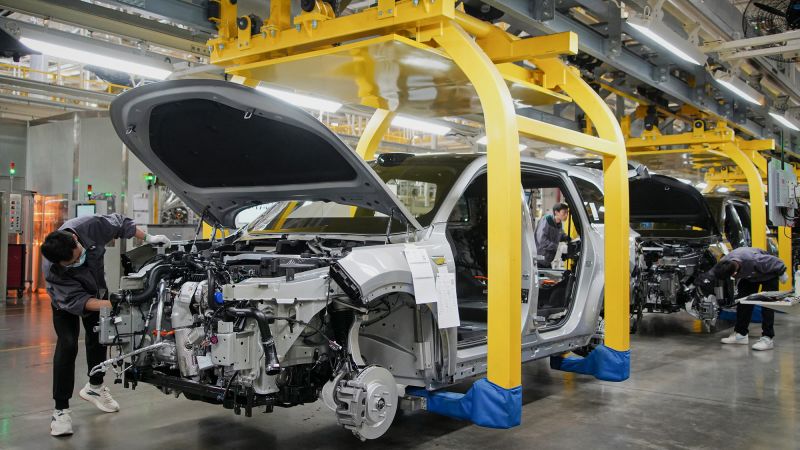Global electric vehicle sales are projected to increase by more than 20% to 17 million in 2024, mainly driven by demand in China, according to the International Energy Agency. The surge in electric vehicle demand is expected to reshape the global auto industry and significantly reduce oil consumption for road transport over the next decade. The IEA anticipates that half of all cars sold globally will be electric by 2035 if charging infrastructure keeps pace, up from a fifth this year, with battery electric vehicles and plug-in hybrid vehicles included in the definition of EVs.
Despite recent reports of declining electric vehicle penetration, the IEA’s data shows a robust increase in global electric car sales, dispelling any notion of a reverse in growth. The growth is not limited to China, as the European Union also saw a nearly 4% increase in new battery electric car sales in the first quarter of 2024 compared to the same period in 2023. IEA’s executive director, Fatih Birol, stated that the global EV revolution appears to be gearing up for a new phase of growth, indicating a positive outlook for the industry.
However, electric vehicle manufacturers are facing challenges with slim profit margins due to price wars and increasing competition. Tesla and Chinese EV maker Li Auto have lowered prices in major markets like China, Germany, and the United States to boost sales. Despite this, Tesla reported its first annual drop in sales in almost four years and its stock has declined by more than 40% this year. Chinese EV maker BYD also experienced a drop in sales after briefly surpassing Tesla as the global market leader.
Automakers play a crucial role in increasing the adoption of electric vehicles worldwide, with affordability being a key factor. While over 60% of EVs sold in China last year were cheaper than conventional cars, prices for new cars with internal combustion engines remain lower on average in Europe and the United States. Market competition and advancements in battery technologies are expected to drive down EV prices in the coming years, with Chinese automakers likely contributing to further price reductions through increased exports.
Chinese carmakers dominated global electric car sales last year, accounting for more than half of the market share despite having a smaller share in the conventional car market. The rise in Chinese EV sales has raised concerns among European Union regulators, leading to an investigation into China’s state support for EV manufacturers. By 2030, almost one in three cars on the roads in China is projected to be electric, compared to 17% in the United States and 18% in the European Union. This shift is expected to have significant implications for the auto industry and the energy sector, with global oil demand peaking in 2030 due to the electrification of the transport sector.
In addition to affordability, the lack of public charging infrastructure is another barrier to mass adoption of electric cars in Europe and the United States. The IEA forecasts a near-fourfold increase in the number of public EV charging points worldwide by the end of the decade, reaching 15 million, under current government policies. This expansion in charging infrastructure will be essential to support the growing demand for electric vehicles and facilitate the transition towards EVs as a key solution to reducing oil consumption and combating climate change.















